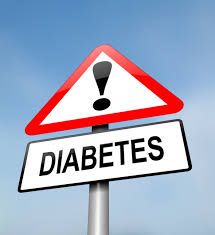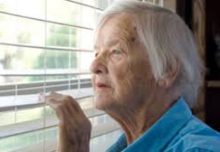 If you are a caregiver to an older loved one, chances are that you know if they are type 1 or type 2 diabetics. Type 1 individuals have been diagnosed with insulin-dependent diabetes where the pancreas no longer functions. Type 2 have been diagnosed with diabetes and been prescribed diet, exercise, oral medications or insulin to manage their blood sugar levels. But there is another number that you need to know that will help you to identify another category, the pre-diabetic.
If you are a caregiver to an older loved one, chances are that you know if they are type 1 or type 2 diabetics. Type 1 individuals have been diagnosed with insulin-dependent diabetes where the pancreas no longer functions. Type 2 have been diagnosed with diabetes and been prescribed diet, exercise, oral medications or insulin to manage their blood sugar levels. But there is another number that you need to know that will help you to identify another category, the pre-diabetic.
Nearly 11 million adults over age 65 in American are either diabetic or pre-diabetic; that is more than one in four 65+ year olds. Being undiagnosed can be a bigger deal than the diagnosed type, because the pre-diabetic is not managing their glucose levels. And if they are not managing their blood sugar levels, they are at risk for cardiovascular issues, loss of limbs owing to poor circulation, kidney disease or failure and blindness. If you are a caregiver to an older adult who is not diagnosed with diabetes, don’t be complacent. Use this short checklist to see if real medical attention might be in order. For the following questions, give yourself a “1” if you can answer yes or “0” if you answer no:
- Is your loved one age 40 or older__;
- Is your loved one age 50 or older__; or
- Is your loved one age 60 or older__…answer yes or no to each of the age questions.
- Is your loved one a male__
- Does your loved one have a family history of diabetes__
- Is your loved one overweight__;
- Is your loved one obese__;
- Is your loved on extremely obese__…answer yes or no to each of these.
Now, subtract 1 if you answer yes to this:
- Is your loved one physically active?__
Do the math. If your total is 4 or more, your older loved one is at risk for undiagnosed or pre-diabetes. If the score is 5 or greater, your older loved one is at a high risk for full-blown diabetes. Your first step should be to clarify your ratings by going to the American Diabetes Association web site with a somewhat more detailed checklist to confirm what these few questions are highlighting for your older loved one:
http://www.diabetes.org/are-you-at-risk/diabetes-risk-test/
Next, if your numbers tell the same story I strongly encourage you to get your older loved one to a health care provider to be properly tested. If their diabetes is confirmed, your loved one’s provider will prescribe an appropriate regimen that likely will include, diet, exercise and perhaps oral medication. But also help your loved one to begin a serious rethinking of their “health style.” If you look at the list of questions, no one can control their age, gender or family history. But the sum total of the “worst case” for each of these will not in the absence of other factors put your loved one in a risk category. But if one or both of their weight or their exercise routine are not in place, they will be at risk.
As your loved one reviews his or her health style and they speak with their provider about appropriate steps to rectify their situation, you may also see an added benefit. They may ask you to come along to work out with them or to also share in a dietary shift toward healthy. So, the benefit is there for you, the caregiver, and for your care receiver.
Charlotte Bishop is a Geriatric Care Manager and founder of Creative Care Management, certified professionals who are geriatric advocates, resources, counselors and friends to older adults and their families in metropolitan Chicago. Please email your questions to info@creativecaremanagement.com.






